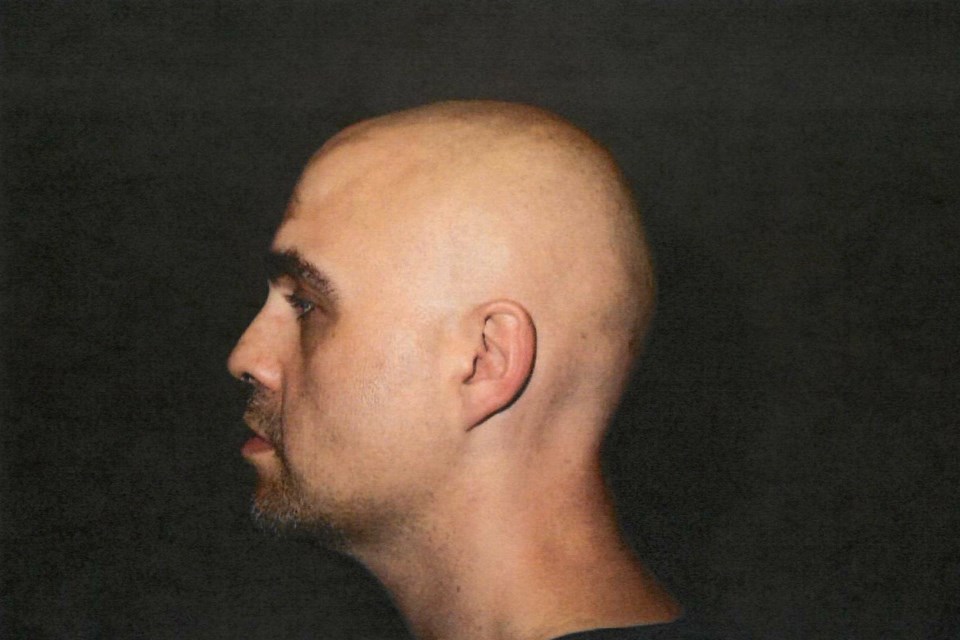WINNIPEG — Jeremy Skibicki understood what he was doing was wrong and was not suffering from schizophrenia when he killed four women, a psychiatrist testified Wednesday.
"The majority of what (Skibicki) told me were fabrications and not a symptom of a mental disorder," Dr. Gary Chaimowitz told Skibicki’s trial in Winnipeg.
Skibicki’s state of mind at the time of the 2022 slayings is a key issue in the trial before Court of King's Bench Justice Glenn Joyal. The defence has acknowledged Skibicki killed the women but argue he's not criminally responsible due to mental illness.
Chaimowitz, called by Crown prosecutors, told court he assessed Skibicki over eight hours last month.
He said Skibicki likely has anti-social and substance abuse disorders but did not have an active major mental health disorder at the time of the killings.
Skibicki's actions and behaviours before and after his arrest point to a "conspiracy laden, racist man with significant personality problems and addictions," said Chaimowitz.
A psychiatrist who testified earlier in the week for the defence delivered a different assessment.
Dr. Solom Das told court he met with Skibicki and determined the man suffered from schizophrenia in 2022.
Das testified Skibicki did know the killings were legally wrong but carried them out anyway because he believed he was on “a mission from God.”
GRAPHIC WARNING: The following details may disturb some readers.
Prosecutors have said Skibicki committed "vile, sexual acts" on the victims’ bodies before disposing of them. Chaimowitz told court he believes Skibicki was driven to kill them because of sexual interest in the dead.
"This man has a very serious paraphilic, homicidal necrophilia disorder," said Chaimowitz.
He testified people with the rare disorder get aroused by having intercourse with someone they've killed. He said the 37-year-old Skibicki has a history of necrophilia interests dating back to his early teens.
Skibicki, he said, told him he had been aroused by people playing dead or who were dead.
The trial has heard Skibicki sexually assaulted his former wife while she was sleeping and told her he had "sleeping beauty syndrome."
Chaimowitz said Skibicki's urges escalated in recent years.
Skibicki has pleaded not guilty to first-degree murder in the slayings of the four Indigenous women: Rebecca Contois, 24; Morgan Harris, 39; Marcedes Myran, 26; and an unidentified woman an Indigenous grassroots community has named Mashkode Bizhiki'ikwe, or Buffalo Woman.
Crown prosecutors say the killings were racially motivated and that Skibicki targeted the victims at homeless shelters.
The trial has heard Skibicki assaulted the women, strangled or drowned them and disposed of their bodies in garbage bins in his neighbourhood.
The Crown has presented evidence from video surveillance, DNA, computer files and witnesses to argue Skibicki had the mental capacity and awareness to plan and cover up the women's deaths.
Court also heard Skibicki has a history of mental illness, including depression, borderline personality disorder and thoughts of suicide.
Skibicki's lawyers accused Chaimowitz of having a predisposed bias against cases of schizophrenia, citing two instances where the psychiatrist testified an accused should not be found not criminally responsible but the court disagreed.
"I provide my opinion to the best of my ability. I will do the best I can. The court is the final decision maker,” he replied.
The trial is to resume Monday for closing arguments.
The federal government has a support line for those affected by the issue of missing and murdered Indigenous women and girls: 1-844-413-6649. The Hope for Wellness Helpline, with support in Cree, Ojibway and Inuktitut, is also available to all Indigenous people in Canada: 1-855-242-3310.
This report by The Canadian Press was first published June 5, 2024.
Brittany Hobson, The Canadian Press



